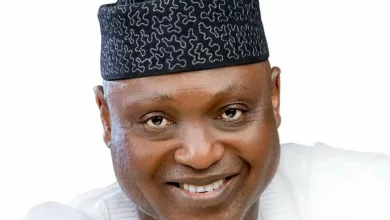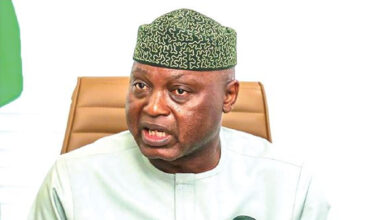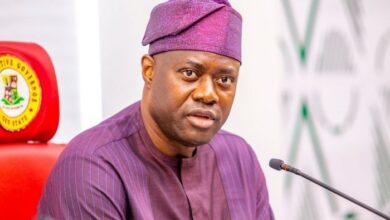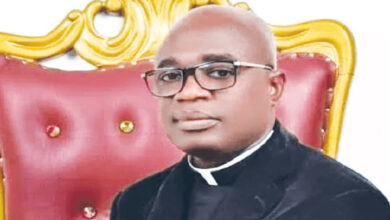Senator Fadahunsi Advocates Large-Scale Rice Cultivation To Boost Economy

Senator Adenigba Fadahunsi, representing Osun East Senatorial District, has urged the federal and state governments to prioritize large-scale rice cultivation as a critical step toward strengthening the naira and reducing Nigeria’s dependence on imported rice.
Speaking in Ilase-Ijesa during the distribution of 3,000 bags of rice to groups across the 10 local government areas in his constituency, Fadahunsi highlighted the economic and social benefits of enhancing local rice production.
He noted that meeting the nation’s rice consumption needs locally would drastically cut down the foreign exchange spent annually on rice importation, thereby protecting the naira from further depreciation.
“Rice has become a staple for people across all demographics in Nigeria,” the senator said. “The foreign exchange going into rice importation annually is staggering. If we can produce large quantities locally, it will significantly reduce forex expenditure and, in turn, strengthen the naira. I urge both federal and state governments to act swiftly on this.”
Fadahunsi also emphasized the importance of making rice affordable and accessible to Nigerians, stressing that the government must ensure its availability to alleviate the economic hardship faced by many citizens.
Commitment to Constituents
The senator’s rice distribution initiative was part of his efforts to mitigate economic difficulties among his constituents. According to a statement by his media adviser, Sam Segun-Progress, the initiative benefited traditional rulers, religious leaders, political figures, market women, and others. Beneficiaries were tasked with distributing the food items to their communities.
The leadership of market women from Osun East paid a courtesy visit to the senator during the event, expressing gratitude for his consistent support of traders and requesting additional assistance in addressing their challenges.
Fadahunsi, in response, reaffirmed his dedication to improving the welfare of his constituents and predicted better economic conditions for Osun State and Nigeria by 2025.
He concluded by calling on all stakeholders to work collaboratively to enhance local food production, reduce import dependency, and ensure economic stability, stating, “We must collectively prioritize initiatives that will secure a sustainable future for our economy and people.”



